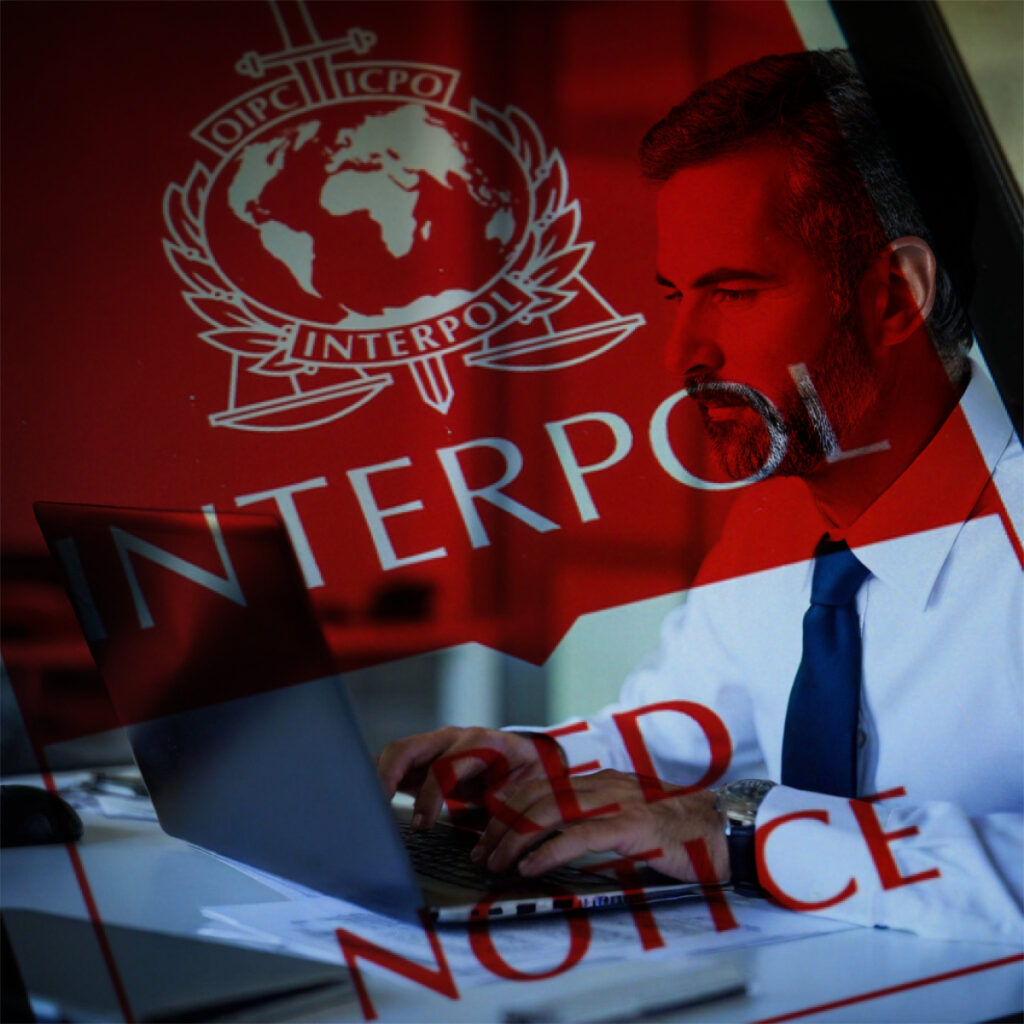Being placed on Interpol’s international wanted lists is a challenging and certainly frightening situation. Interpol can issue a red notice, which effectively becomes a global wanted notice. This notice informs police in other countries that a person is wanted for prosecution or to serve a sentence. We suggest determining what a red notice is, how to check it, and how a red notice lawyer can help.
What does an Interpol Red Notice Mean?
An Interpol Red Notice is a request from an Interpol member state for assistance in locating and arresting a suspect with a view to eventual extradition. However, it is not an international arrest warrant and does not require mandatory detention.
It is essentially a signal to law enforcement agencies in member countries that a person is wanted for a specific offence and a request for assistance in apprehending him or her. Despite this, a red notice can affect one’s ability to travel, work, and other areas of life.
This notice alone does not have the legal force to compel arrest. It is up to each participating country to decide how to respond to it. Some countries may detain a person on the basis of the notification.
Other countries initially conduct their own investigation. Also keep in mind that a red notice is not proof of guilt, but only indicates suspicion on the part of the applicant country. For many people, this means that they may be detained or questioned when attempting to cross borders, even without an official arrest warrant.
Verify the Validity and Grounds of the Red Notice
Firstly, if you find out that there is a red notice against you, find out its authenticity and grounds. Interpol publishes some red notices on its official website. Therefore, it is worth checking the public access. However, not all notices end up on the public database. To get more information, it may be necessary to contact a lawyer who has experience with Interpol cases.
An experienced attorney can file a data request from Interpol to understand the grounds on which the notice was issued. In some cases, the notice may have been issued for political reasons or due to documentation errors. If you are able to prove that the notice violates your rights or does not comply with Interpol’s statutes, this may be the basis for overturning it.
In addition, lawyers may also request updates on the status of your notice, as notices may be changed or withdrawn by the applicant country.
Explore Options for Challenging or Removing the Red Notice
There are certain mechanisms to challenge and remove a red notice. Firstly, you can appeal to the Commission for the Control of Interpol Files (CCF). This is an independent body authorized to consider complaints and requests for the removal of notices. The Commission examines whether the notice violates Interpol’s statutory rules, taking into account political, military, racial and religious discrimination. If a notice is found to have been issued in violation of these principles, it may be removed.
Another way is to demonstrate that the case against you does not meet the legal standards set out in international law. For example, if the case is based on facts that are not criminal in international practice. Also, if there is evidence of political motivation, the chances of a successful challenge increase.
Interpol red notice removal lawyers can help you gather evidence and prepare legal arguments to file a complaint with CCF. This process takes time, but it can make a significant difference to your situation and free you from the legal constraints of red notice.
Prepare for Potential Extradition Requests
If you are the subject of a red notice, you should be prepared for possible extradition requests. Extradition is the process by which one state transfers a person to another state for prosecution or execution. However, the existence of a red notice does not guarantee automatic extradition, as the process requires compliance with many legal procedures.
Extradition is governed by the national laws of the host country, as well as international treaties. This means that the authorities of the country you are in will have to consider the extradition request. After, make a decision based on local laws and international obligations. Some countries may refuse extradition if they believe that the notice was issued for political or discriminatory reasons.
Preparing for possible extradition includes gathering all legal documents that can prove that there are no grounds for your arrest and extradition. For example, if the case against you shows signs of being politically motivated. Also, if the case involves a violation of your rights, this could affect the court’s decision on an extradition request. By working with a lawyer, you will be able to analyse which arguments and documents will be most persuasive to protect your interests in the legal process.
The article was prepared by Anatoly Yarovyi, a lawyer of the international law firm specializing in international law and protection of the rights of persons under Interpol notice.








